- Home
- Bonnie Bryant
The Trail Home Page 2
The Trail Home Read online
Page 2
“Were you afraid?” Carole asked her.
Scott recoiled at the question. He obviously didn’t like the idea that someone would challenge his sister’s courage. He started to protest, but Callie cut him off.
“You bet,” she said. “But it worked out okay. I like riding again, and this feels right.”
“Aren’t you tired and ready to go home?” Scott asked.
“Not quite,” said Callie. “As long as everybody’s here, you can save me a lot of work—”
“Anything we can do …,” Carole said quickly.
“Not that kind of work,” said Callie. “Like writing out invitations kind of work. Mom and Dad are planning a party for this weekend—on Saturday. You’re all invited.” She looked around at everyone. Ben looked away, embarrassed.
Callie saw that. “You, too, Ben, of course,” she said. “Definitely, all of you. It’s sort of a welcome-home party for me. In the backyard, cookout, swimming pool—the whole deal. Dad says he won’t even mind if we play music he doesn’t know how to dance to. It’s time we had some fun, don’t you think?”
“Great idea,” Carole said.
“Can you come, Emily?” Callie said.
“Sure. I wouldn’t miss it.”
“Stevie?”
Stevie glanced at Scott. He didn’t look at her. It was probably just as well. If he had looked at her, it would have been a glare and Stevie would have chickened out. This party was for Callie, not Scott. “Of course I’ll be there,” she said.
“You can bring Phil, too.”
“Okay, I’ll see if he can come,” Stevie said, hoping very much that he would be able to. Phil, her boyfriend, would provide a good distraction from Scott’s moody glares.
“Come on, honey. Time to go home now,” Congressman Forester said, joining the teenagers in the stable. He offered his arm to his daughter. Callie looked at it briefly and then took it. She was tired. It was clear to everyone that she was grateful for the support.
The crowd dispersed. Emily gave PC a final pat and followed Callie to the car, chatting with Scott as they went. Carole took PC’s saddle to the tack room, and Ben picked up a pitchfork and began mucking out a stall down the aisle.
Stevie stood and watched Callie. She cringed with each awkward step the girl took. It was her fault. All of it was her fault.
THREE
After Callie’s first session, Carole wasn’t in any hurry to leave Pine Hollow. She packed a tired Emily off to her own home, telling her she’d finish looking after PC. Stevie had disappeared, and Carole wasn’t surprised. The day had been hard on her.
Carole wondered how she’d feel if she’d been the one behind the wheel. It wouldn’t matter how many times she was told it wasn’t her fault: she wouldn’t be any more ready to believe it than Stevie was. It was one thing to consider the matter abstractly: You did everything right. It wasn’t your fault. Nobody would have done anything different. It could have been so much worse. It was another thing to watch Callie struggle with each step.
When Carole returned from the tack room, PC was waiting for her expectantly. Horses seemed to understand that a nice grooming and a rubdown were the payoff they got for a job well done. PC was smart enough to know that he’d done a good job.
Carole scratched him affectionately on the cheek and patted his neck. It only took a few minutes to finish grooming him and give him his fresh hay and another handful of carrots. She gave him one last pat for good-bye and then stepped out of his stall, sliding the bolt into place behind her.
She could hear someone working in a stall down the aisle. Curious, Carole followed the sound of hay being pitched expertly. By the sound of the third forkful, she knew it was Ben. It was funny how someone who said so little with words could say so much through his work.
Right then Carole wasn’t feeling terribly social herself, but she decided to see what Ben was up to and give him a hand. She picked a shovel off the rack and went back down the aisle.
Ben looked up when she appeared. If she hadn’t known him better, she might have thought he almost smiled when he saw her.
“Thought you could use a hand,” she said.
He answered with something that was more a grunt than a word. She took it as a thank-you and used her shovel to help clean the stall floor. When the wheelbarrow was full, she rolled it out to the manure pile and returned, picking up a fresh load of straw on the way. Together they spread the sweet grass on the floor of the stall—a stall that had been empty since the accident. That was when Carole looked at the nameplate on the stall door. The brass was still shiny and new, the name clear and clean: FEZ.
“He’s coming back today?” Carole asked.
“Needs a clean stall,” said Ben.
“Is he—?”
“Judy and Max talked. She says she’s done everything she can. It’s time for him to come home.”
“Today?” Carole asked, repeating the question Ben hadn’t answered.
“Looks that way,” he said. He glanced at his watch, offering no further information on the subject. Ben could be pretty infuriating—if you took that sort of thing personally. It wouldn’t have occurred to Carole to give so little information. Then she realized that, from Ben’s point of view, he wasn’t holding back information as much as speculation. He really wouldn’t know if Judy was actually going to bring the horse by that afternoon or if she might be delayed by an emergency with another of her patients and put it off until the next day. Carole sighed. Fez would be there when Judy brought him, no matter when that was.
“Well, the place looks spick-and-span for our returning guest. I’ll go update the charts in his notebook so the office will be as ready for his arrival as the stall is.”
Each of Pine Hollow’s horses and residents had a notebook in which all the caretakers, instructors, owners, and various professionals, including the vet and the farrier, could make notations. In some ways it was like a patient’s chart in a hospital. Most of the entries were pretty routine, noting feed blends, farrier appointments, and veterinary matters like immunizations and tests. Fez’s chart was mostly empty, since he’d only been at Pine Hollow a short while before the accident. Nevertheless, Carole needed to make notations for the records about his recovery since the accident, and she would have to put in whatever information and recommendations Judy had for Fez’s recuperative care.
Carole went to the desk that was partly hers because she was Pine Hollow’s morning stable manager for the summer, and took out his chart. She reread the details of the accident and described the terrible bolt of lightning and violent clap of thunder that had spooked Fez into jumping the high fence and racing directly in front of Stevie’s car. In the future, if there was a future, anyone reading his record would know that Fez was deathly afraid of thunder and lightning.
Carole shifted the notebook to write on it better. She found that it was resting on a pile of papers she hadn’t noticed when she’d first sat down. It wasn’t unusual for a pile of papers to appear on the desk suddenly, since Max sometimes left things for her attention. In fact, the office often seemed a little disorganized, much like the tack room that abutted it. It could have been described as disorganized organization. It looked messy, but those who knew the system could find anything.
Carole lifted the notebook to find out what the papers were all about.
They were a form of some kind. At the top of the first sheet was a logo, then the word application, followed by some handwritten information.
“That’s mine,” Ben said, yanking the papers out of Carole’s hand before her eyes could even focus on the contents.
“Uh, sorry,” she said automatically. “I thought Max might have left something for me—”
“It’s okay, but they’re mine,” he said, cutting her off. He folded the pages quickly and stuffed them into his back pocket. “I’m going for a bucket of Fez’s feed. He’ll be hungry when he gets here.” Before Carole could say another word of apology—or any word at all—he was back
out the door, headed for the grain shed.
Once again Ben had successfully avoided any kind of informative conversation, apparently deferring to the needs of a horse.
Carole glanced down at the desk before replacing the notebook. The envelope for Ben’s papers was still there, addressed to him. It had the same logo the application had. It was from the local Horsemen’s Association, and under the address was handwritten Scholarship Committee.
The pieces of the puzzle slid into place. Ben had graduated from high school a year before. Carole could still remember his embarrassed smile when the Pony Club had given him a card signed by all the members, Carole, Lisa, and Stevie included. Max had told him to take a day off work for graduation, but he’d only been gone for the morning, returning that afternoon in his usual sensible work clothes but with a fresh haircut—no doubt obligatory. Nothing had been said about the graduation itself, and it seemed to mean little to Ben, other than that he could work longer hours at Pine Hollow.
Now, apparently, Ben was applying for the Horsemen’s Association’s scholarship, which meant he intended to go on to college. There were a couple of colleges in the area that offered good equine studies programs. Carole knew about them because she intended to apply to one or more of them in another year herself. She’d also known about the scholarship from the Horsemen’s Association. What she hadn’t known was that Ben was applying now.
That was great news. And of course it made a lot of sense. Ben didn’t talk much, but he was one of the most naturally gifted horsemen she’d ever known. He’d never have trouble getting work with horses, but a college degree, especially one in equine studies, would make a big difference in the kind of work he’d get.
Since Ben had arrived at Pine Hollow, Carole had seen a lot of him. She’d watched him calm upset horses, train fidgety ones, and tend sick ones. He’d fed them, groomed them, dosed them, exercised them, taught them. He seemed to speak to them in their own language, establishing a primal relationship with them. It was only people Ben couldn’t talk to.
And now he wanted to go to college. Carole felt a small glow. She knew a secret, and it was a good one. Ben deserved this. He deserved to go to college, and he deserved all the help that was available. He deserved scholarships and recognition. He deserved everything she and her friends could do for him.
While these thoughts still whirled in her head, Ben returned to the office.
“It’s ready,” he said.
“Good. Listen, Ben, I really wasn’t snooping, but I want to say how happy I am that you’re applying for the scholarship. I didn’t know you were thinking about college …”
He didn’t say anything, but the look he gave her made her stop talking. Carole blushed. She hadn’t said what she’d wanted to say. It made it sound as if Ben were somehow different from other people—not the kind of person who should think about college. That wasn’t what she meant at all, but Ben’s look told her that that was what he’d heard.
“Well, good luck,” she said, backing off.
“It’s not really about luck,” he said, once again turning aside her good wishes.
Carole swallowed any further words that came into her head. There was no point. Ben would turn anything she said into what he expected to hear. That wasn’t fair, but she couldn’t do anything about it. He thought of himself as a second-class citizen, but she didn’t, and she didn’t want to be tarred with that brush.
“Right,” she said.
At that awkward moment, they both heard a van coming up the drive to the stable. It had to be Judy Barker with Fez.
“I think our patient has come home from the hospital,” Carole said.
“I hope he’s easier to get off the van this time,” Ben said.
Carole laughed. When Fez had first arrived at Pine Hollow, it had taken the two of them, a blindfold, ten carrots, and forty-five minutes to coax the reluctant traveler off the van and into his stall.
This time it was a very different story. Fez was a changed animal. He was submissive and meek. His head hung low with fatigue; his ears, once alert and flicking in every direction, now nearly flopped. He’d lived through a terrible ordeal and had more hard times to go.
“I don’t know,” Judy said, shaking her head as she led him down the gentle slope of the ramp. “I’ve got his leg in a splint. He can stand on it and walk a little. He’ll spend most of his time lying down, but he loses muscle tone every time he doesn’t use the leg, and it seems to be getting harder, rather than easier, for him to stand. I hate to say it, but I just don’t know if this boy is going to make it. He doesn’t need medicine now as much as he needs care. He needs exercise and rest—in careful proportions. Ben, Max said you have some ideas.”
“I do,” he said.
Carole smiled to herself. Almost anybody else in the world would have then given some idea of what the ideas were, but not Ben. Well, both Carole and Judy knew that whatever they were, they would be good ones, and if he had any questions, he’d ask. Ben would never, ever, under any circumstances, do anything that would hurt a horse.
Ben took the lead rope from Judy and, speaking gentle words into one of Fez’s flopped ears, led him back to his stall. Except for his markings, it was almost impossible to recognize the horse. All the spark, all the fire, all the character that had made him both difficult and great were gone. Carole bit her lip, holding back the almost overwhelming emotion she felt watching the broken horse nearly stumble back to his home.
“We can take care of the paperwork,” Carole said, inviting Judy into the office.
Judy sat down across the desk from Carole and handed her the medical records. She also gave her medicines that Ben and Max could administer to Fez and carefully described how they should be used. Carole took notes and stored the medicines in the small refrigerator near her desk. She closed the notebook, shelved it, and invited Judy to take a final look at her patient.
Walking along the hallway at Pine Hollow with Judy was always an experience. The vet never missed a chance to check on all her patients.
“I see Barq’s been eating better,” she said, rubbing the Arabian’s nose and admiring the horse’s recently more rounded belly. “And look, the scarring is almost all gone on Penny’s flank. What’s the matter with Nickel?”
“Nothing, as far as I know,” Carole said, suddenly alert to a possible problem.
“He looks tired,” said Judy.
“Oh, right, tired. Of course he is,” said Carole. “The youngest kids were working on gait changes in class today. Poor old Nickel went from a walk to a trot to a canter about four hundred times. I’ll see to it that he gets an apple tonight and a little molasses in his feed tomorrow.”
“He’ll thank me for that!” Judy said. “Hi, Starlight!” She patted his nose. “Oh, Belle, don’t be jealous.” She patted Belle’s nose, too. “PC? How’s it going?”
“It was his big day today,” Carole said.
“Right. Callie was on him, wasn’t she? How’d it go?”
“She was as tired as Nickel.”
“I’ll bet. And how did it go for Stevie?”
“Tough,” said Carole.
“It would be,” said Judy. “Now, Fez, are you glad to be home?” she asked, stopping outside his stall.
The horse lifted his eyes to take a look at his doctor. Ben stood by him, still murmuring gently, reassuringly. When he’d finished saying whatever he was telling the horse, he turned to Judy.
“We’ll do fine together,” he said.
“Tell me what you’ve got in mind for him,” Judy said.
Ben unsnapped the horse’s lead rope and moved to the stall’s door. As he did so, Fez began a slow and pained descent to a lying position. Carole winced for him.
“Is it okay for him to do that?” she asked.
“Some,” said Judy. “He shouldn’t be putting too much weight on the leg for a while yet. The problem is that if he lies down too much, he’ll lose all his muscle tone and he may never be able to get up again.
He really needs to move as much as he can.”
“That’s what I want to work on,” said Ben, latching the stall door behind him. “I was testing to see if he was well behaved enough to remain standing as long as I had him on the lead. It worked, and that means I should be able to walk him a little each day. Then, later, maybe more than a walk. I made a kind of chart.” He reached into his back pocket. “I’ll show you.” He pulled out the clutch of papers he’d taken off Carole’s desk and unfolded them, turning to the third or fourth sheet.
He and Judy studied them together while Carole let the cobwebs clear out of her head. It only made sense that the Horsemen’s Association scholarship application would require a competitive submission that would give the committee an idea of the skills the applicant already had. It had seemed odd, but now Carole understood why he’d pulled the application away from her so abruptly. It wasn’t just his future that was on the line, it was his ego, too.
Ben had to show the papers to Judy. She’d have to oversee and approve his project. But he could keep his plan from Carole. That was all right by her, too. She didn’t need to see exactly what he had in mind. The only thing she really needed to do was help him, though he wasn’t likely to ask for help. She’d just have to give it to him—whether he realized he needed it or not.
Back when Carole, Lisa, and Stevie had first formed the group they called The Saddle Club, they had decided that, unlike a lot of other clubs, this one should have just two rules. The members had to be horse-crazy—which was the way they’d described themselves in those days—and they had to be willing to do anything to help their friends. Every time they’d rolled up their sleeves to pitch in, they called it a Saddle Club project. But Lisa was a continent away. Stevie was working on her own project. This would be Carole’s own personal Saddle Club project—whether or not Ben wanted it.
“This is good, Ben,” Judy said when they’d finished going over the program. “You’ve planned for slow but steady progress, and you can be flexible if your patient either slows it down or speeds it up. The thing you don’t know—can’t know, really—is whether your patient will be able to cooperate at all. He’s uncomfortable, even in pain a lot of the time. It’s going to take a good deal of drive for him to move beyond the point he’s already reached.”

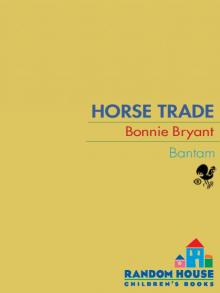 Horse Trade
Horse Trade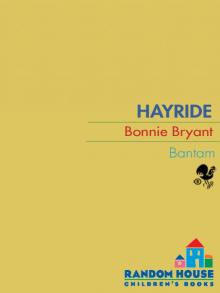 Hayride
Hayride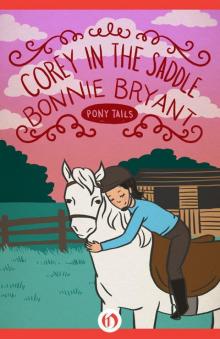 Pony Tails 06- Corey in the Saddle
Pony Tails 06- Corey in the Saddle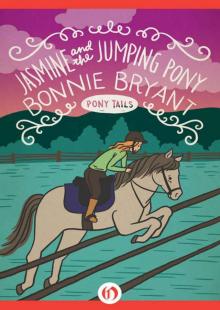 Jasmine and the Jumping Pony (Pony Tails Book 16)
Jasmine and the Jumping Pony (Pony Tails Book 16)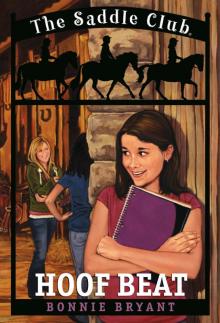 Hoof Beat
Hoof Beat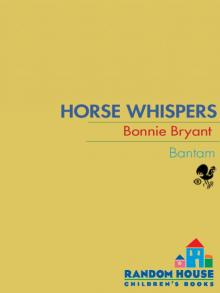 Horse Whispers
Horse Whispers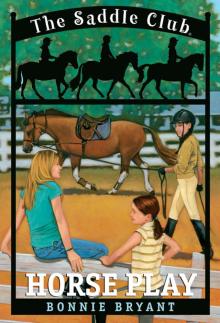 Horse Play
Horse Play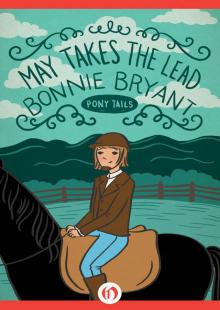 Pony Tails 05- May Takes the Lead
Pony Tails 05- May Takes the Lead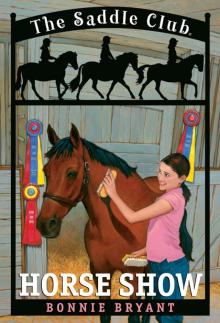 Horse Show
Horse Show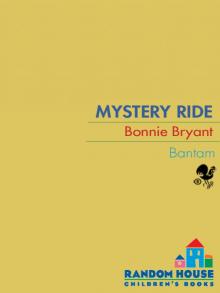 Mystery Ride
Mystery Ride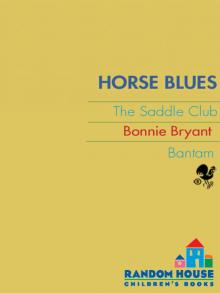 Horse Blues
Horse Blues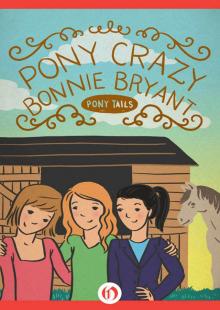 Pony Tails 01- Pony Crazy
Pony Tails 01- Pony Crazy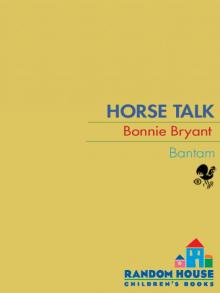 Horse Talk
Horse Talk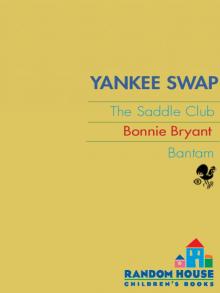 Yankee Swap
Yankee Swap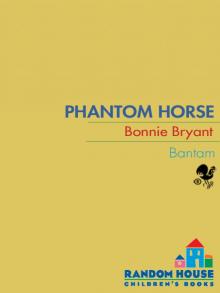 Phantom Horse
Phantom Horse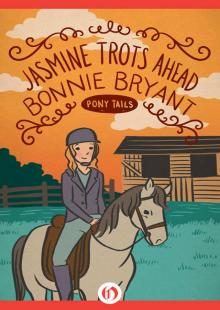 Pony Tails 07- Jasmine Trots Ahead
Pony Tails 07- Jasmine Trots Ahead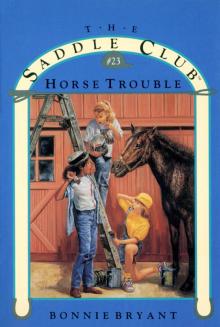 Horse Trouble
Horse Trouble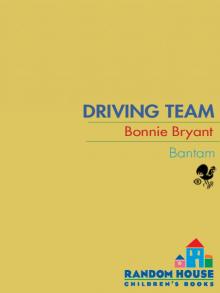 Driving Team
Driving Team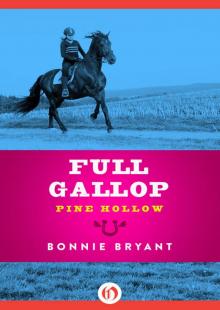 Full Gallop
Full Gallop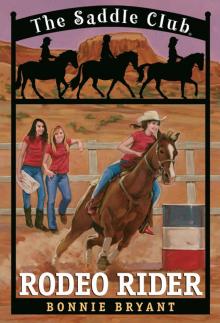 Rodeo Rider
Rodeo Rider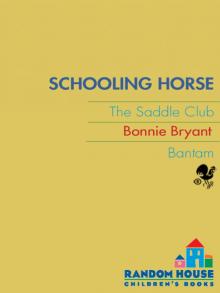 Schooling Horse
Schooling Horse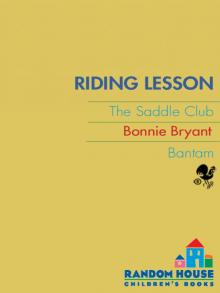 Riding Lesson
Riding Lesson Million-Dollar Horse
Million-Dollar Horse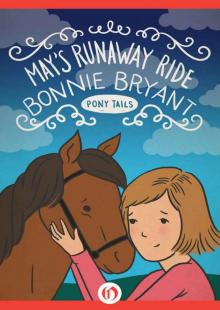 May's Runaway Ride (Pony Tails Book 14)
May's Runaway Ride (Pony Tails Book 14)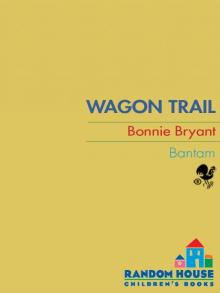 Wagon Trail
Wagon Trail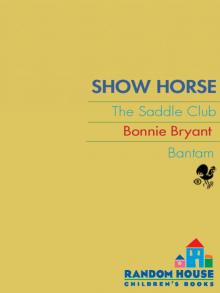 Show Horse
Show Horse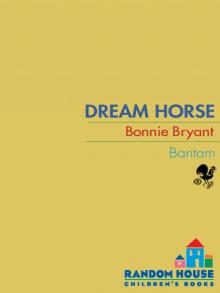 Dream Horse
Dream Horse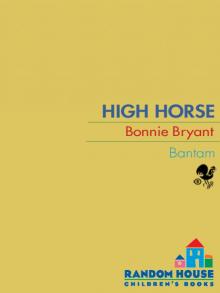 High Horse
High Horse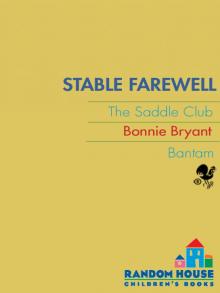 Stable Farewell
Stable Farewell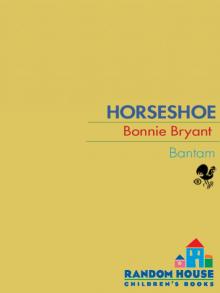 Horseshoe
Horseshoe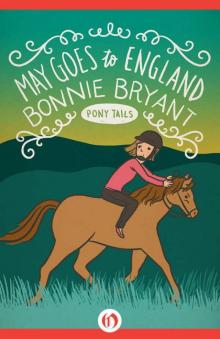 May Goes to England (Pony Tails Book 11)
May Goes to England (Pony Tails Book 11)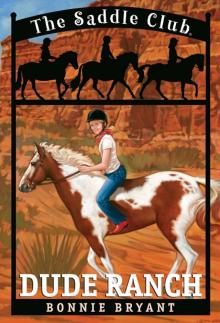 Dude Ranch
Dude Ranch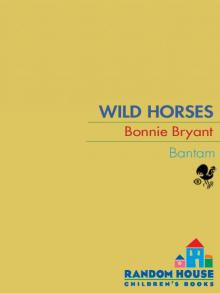 Wild Horse
Wild Horse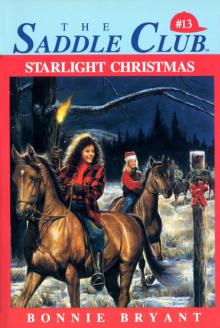 Starlight Christmas
Starlight Christmas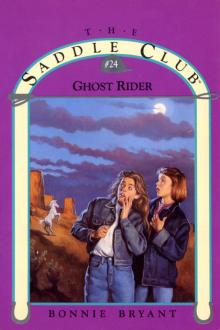 Ghost Rider
Ghost Rider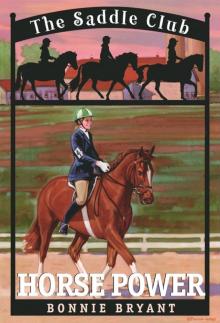 Horse Power
Horse Power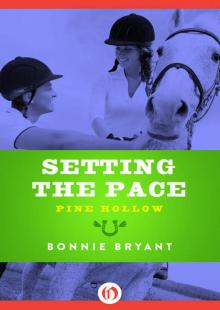 Setting the Pace
Setting the Pace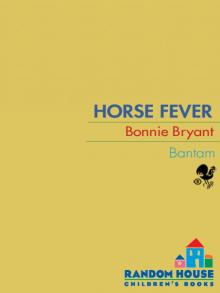 Horse Fever
Horse Fever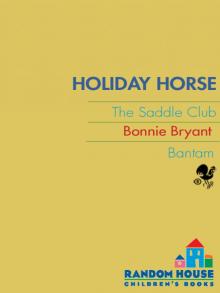 Holiday Horse
Holiday Horse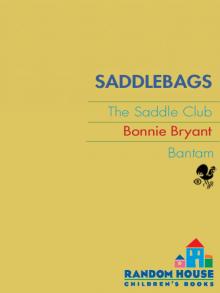 Saddlebags
Saddlebags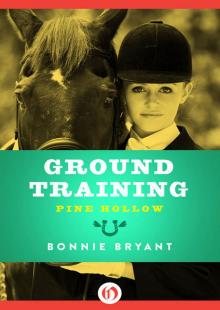 Ground Training
Ground Training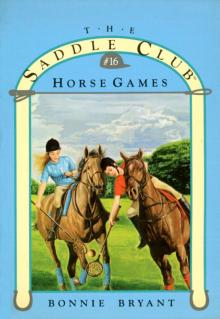 Horse Games
Horse Games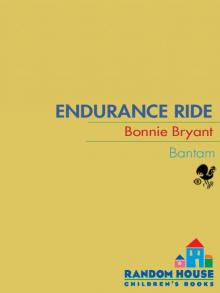 Endurance Ride
Endurance Ride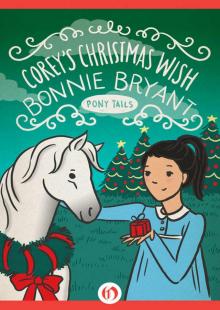 Pony Tails 15- Corey's Christmas Wish
Pony Tails 15- Corey's Christmas Wish Christmas Treasure
Christmas Treasure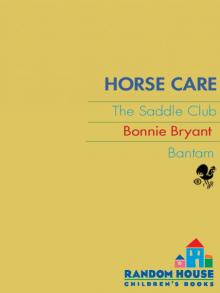 Horse Care
Horse Care Stagecoach
Stagecoach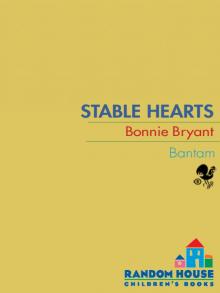 Stable Hearts
Stable Hearts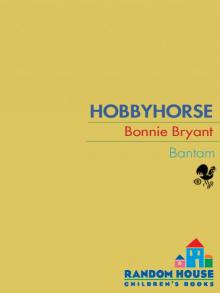 Hobbyhorse
Hobbyhorse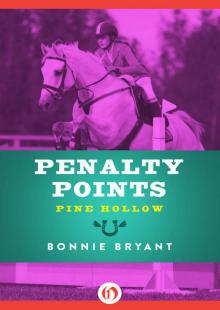 Penalty Points
Penalty Points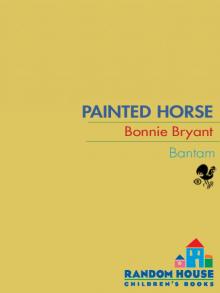 The Painted Horse
The Painted Horse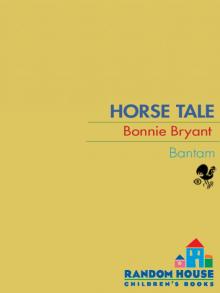 Horse Tale
Horse Tale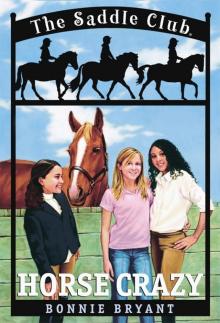 Horse Crazy
Horse Crazy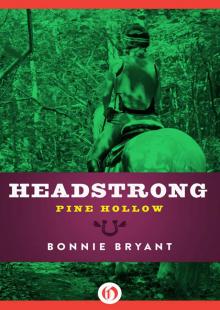 Headstrong
Headstrong English Rider
English Rider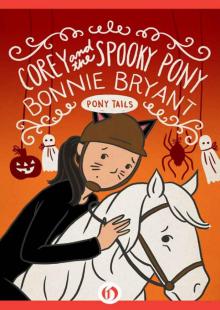 Corey and the Spooky Pony (Pony Tails Book 9)
Corey and the Spooky Pony (Pony Tails Book 9)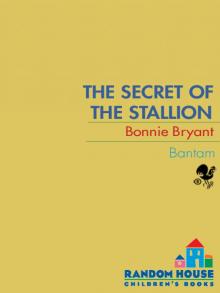 Secret of the Stallion
Secret of the Stallion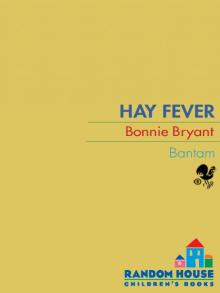 Hay Fever
Hay Fever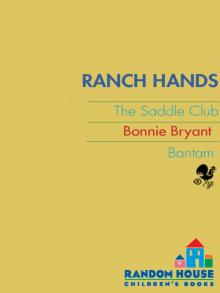 Ranch Hands
Ranch Hands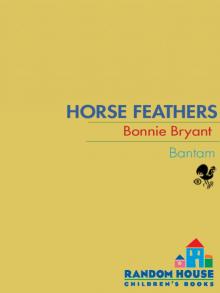 Horse Feathers
Horse Feathers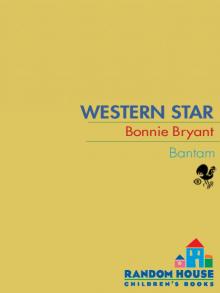 Western Star
Western Star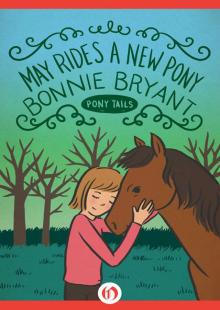 Pony Tails 08- May Rides a New Pony
Pony Tails 08- May Rides a New Pony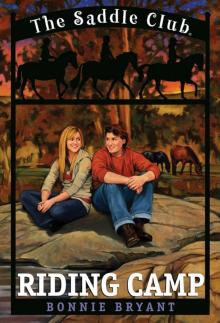 Riding Camp
Riding Camp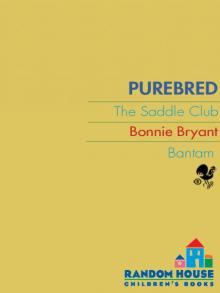 Purebred
Purebred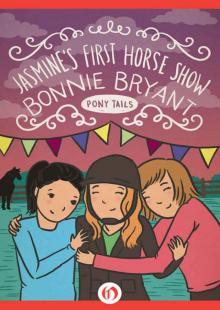 Jasmine's First Horse Show (Pony Tails Book 13)
Jasmine's First Horse Show (Pony Tails Book 13)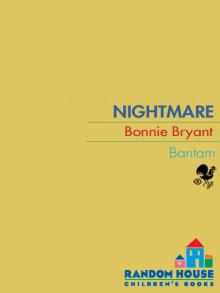 Nightmare
Nightmare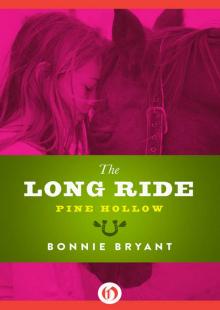 The Long Ride
The Long Ride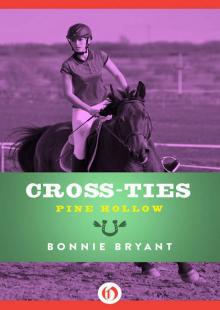 Cross-Ties
Cross-Ties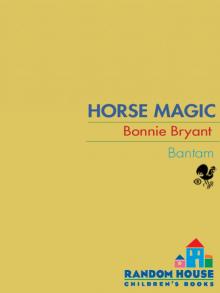 Horse Magic
Horse Magic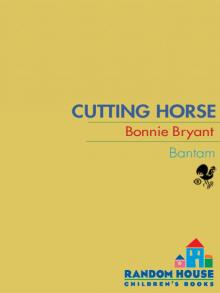 Cutting Horse
Cutting Horse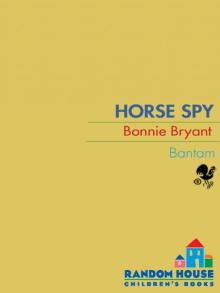 Horse Spy
Horse Spy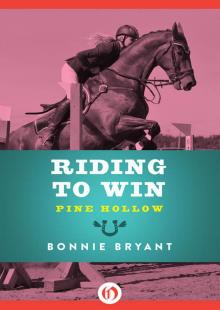 Riding to Win
Riding to Win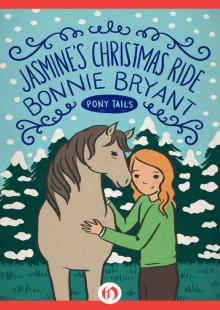 Pony Tails 04- Jasmine's Christmas Ride
Pony Tails 04- Jasmine's Christmas Ride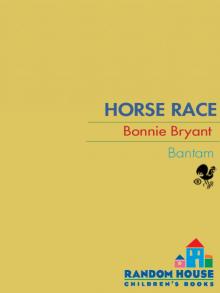 Horse Race
Horse Race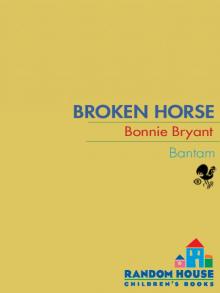 Broken Horse
Broken Horse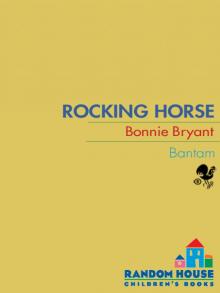 Rocking Horse
Rocking Horse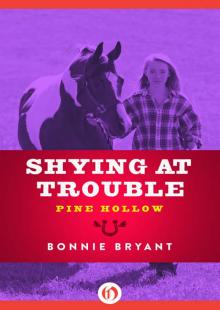 Shying at Trouble
Shying at Trouble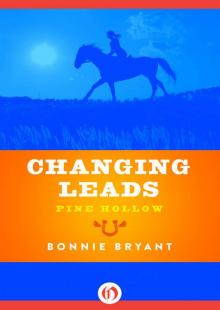 Changing Leads
Changing Leads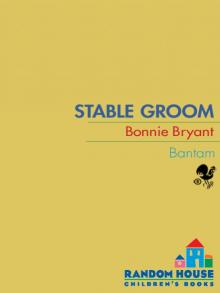 Stable Groom
Stable Groom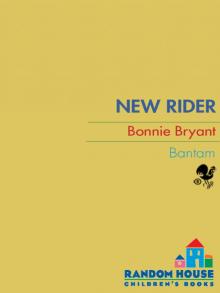 New Rider
New Rider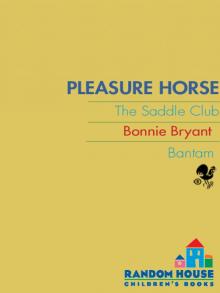 Pleasure Horse
Pleasure Horse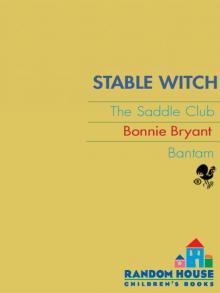 Stable Witch
Stable Witch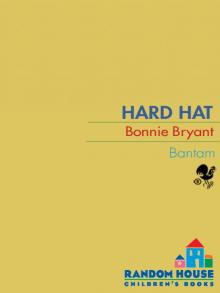 Hard Hat
Hard Hat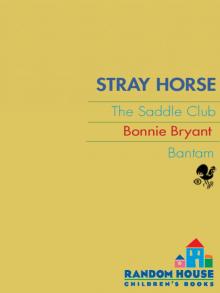 Stray Horse
Stray Horse High Stakes
High Stakes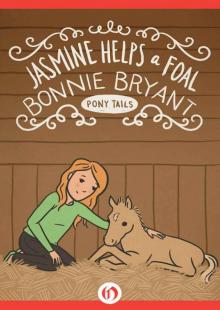 Jasmine Helps a Foal (Pony Tails Book 10)
Jasmine Helps a Foal (Pony Tails Book 10)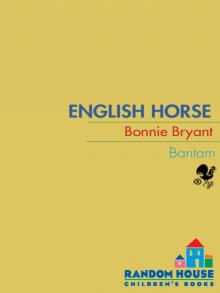 English Horse
English Horse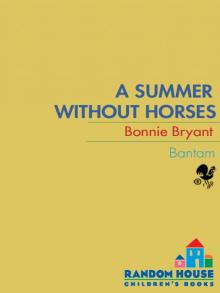 A Summer Without Horses
A Summer Without Horses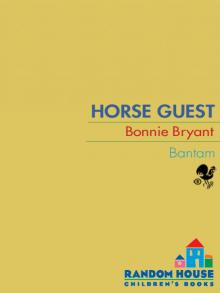 Horse Guest
Horse Guest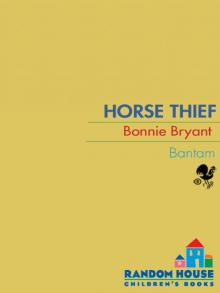 Horse Thief
Horse Thief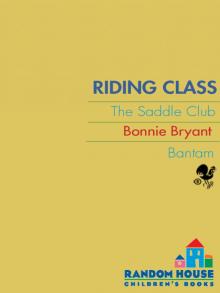 Riding Class
Riding Class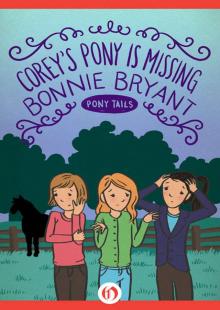 Pony Tails 03- Corey's Pony Is Missing
Pony Tails 03- Corey's Pony Is Missing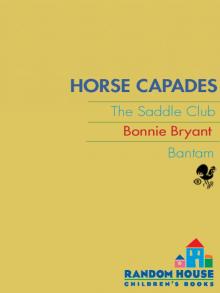 Horse Capades
Horse Capades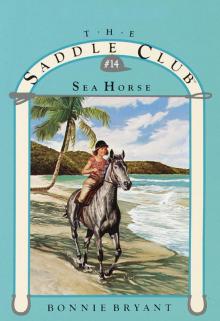 Sea Horse
Sea Horse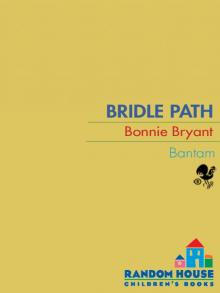 Bridle Path
Bridle Path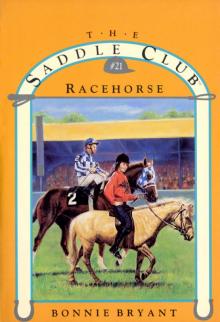 Racehorse
Racehorse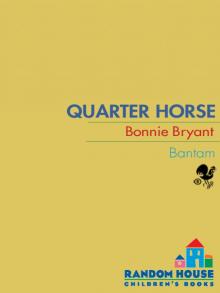 Quarter Horse
Quarter Horse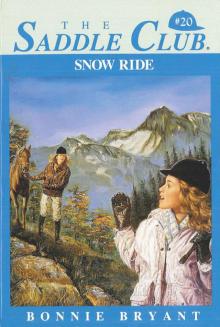 Snow Ride
Snow Ride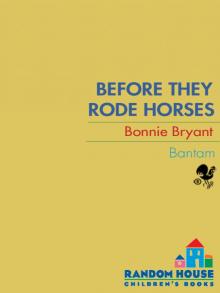 Before They Rode Horses
Before They Rode Horses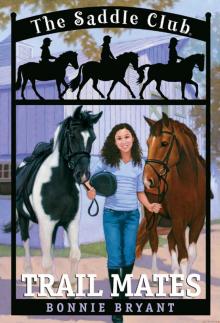 Trail Mates
Trail Mates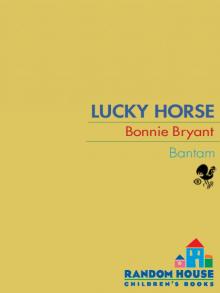 Lucky Horse
Lucky Horse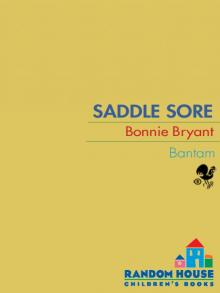 Saddle Sore
Saddle Sore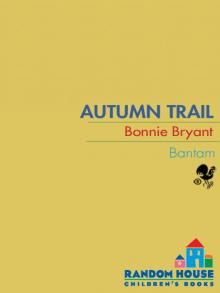 Autumn Trail
Autumn Trail Lisa
Lisa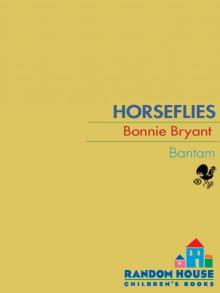 Horseflies
Horseflies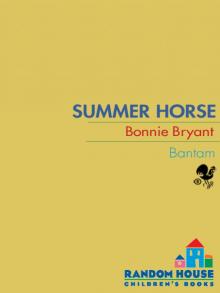 Summer Horse
Summer Horse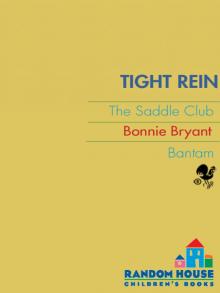 Tight Rein
Tight Rein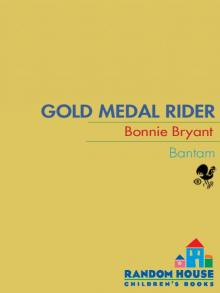 Gold Medal Rider
Gold Medal Rider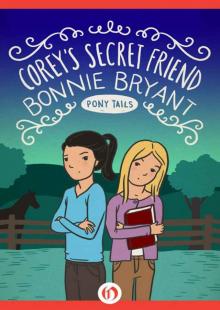 Corey's Secret Friend (Pony Tails Book 12)
Corey's Secret Friend (Pony Tails Book 12)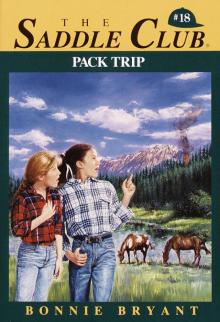 Pack Trip
Pack Trip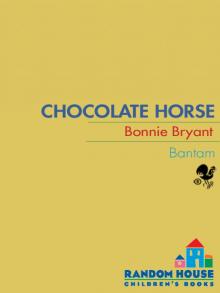 Chocolate Horse
Chocolate Horse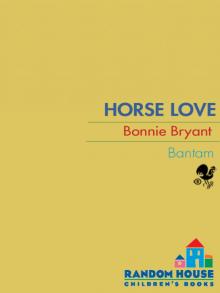 Horse Love
Horse Love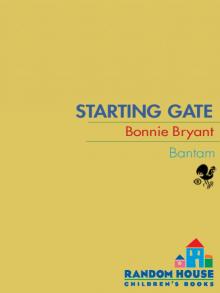 Starting Gate
Starting Gate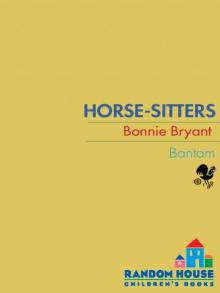 Horse-Sitters
Horse-Sitters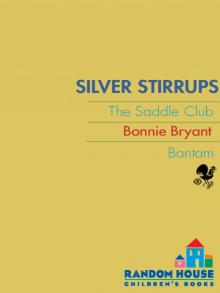 Silver Stirrups
Silver Stirrups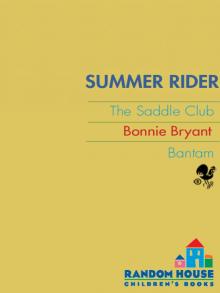 Summer Rider
Summer Rider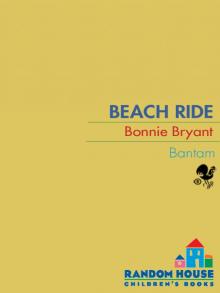 Beach Ride
Beach Ride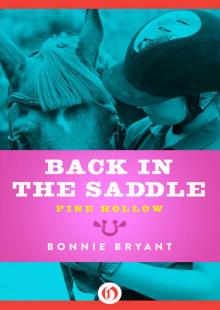 Back in the Saddle
Back in the Saddle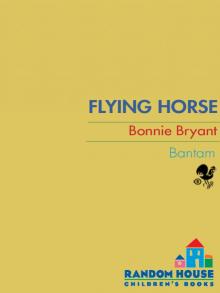 Flying Horse
Flying Horse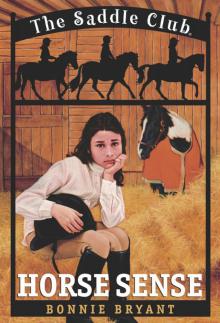 Horse Sense
Horse Sense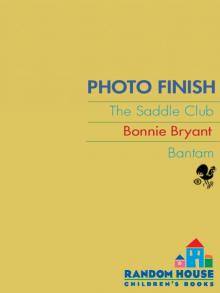 Photo Finish
Photo Finish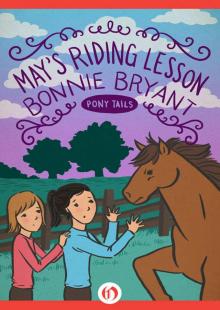 Pony Tails 02- May's Riding Lesson
Pony Tails 02- May's Riding Lesson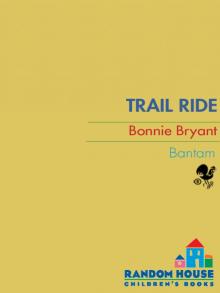 Trail Ride
Trail Ride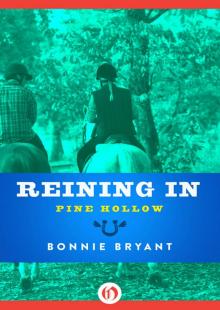 Reining In
Reining In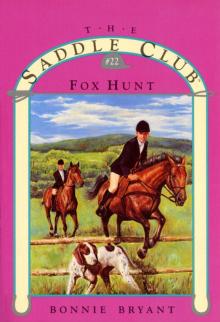 The Fox Hunt
The Fox Hunt Show Judge
Show Judge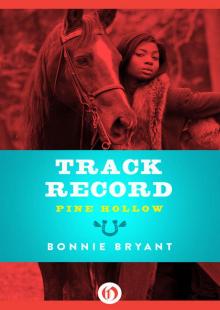 Track Record
Track Record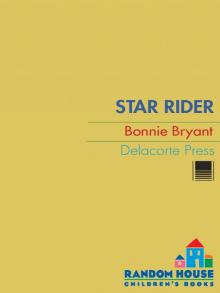 Star Rider
Star Rider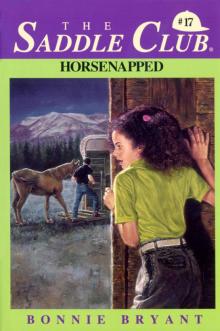 Horsenapped!
Horsenapped!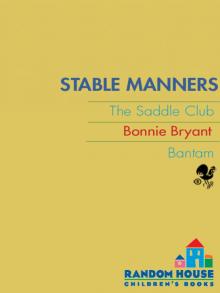 Stable Manners
Stable Manners Show Jumper
Show Jumper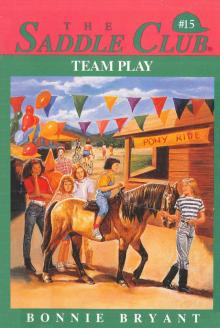 Team Play
Team Play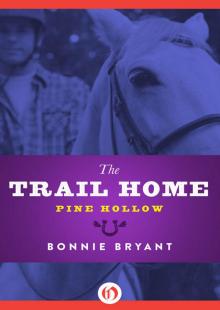 The Trail Home
The Trail Home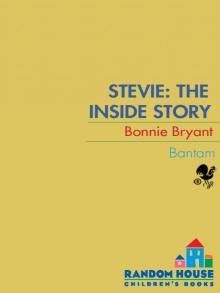 Stevie
Stevie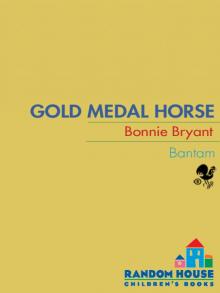 Gold Medal Horse
Gold Medal Horse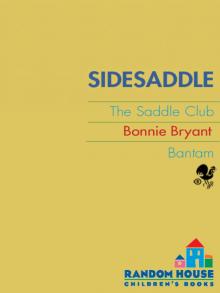 Sidesaddle
Sidesaddle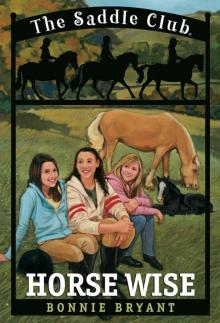 Horse Wise
Horse Wise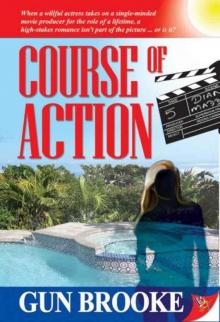 Course of Action
Course of Action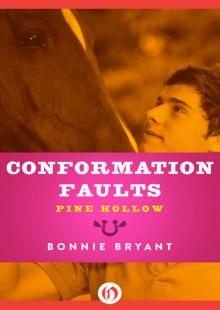 Conformation Faults
Conformation Faults